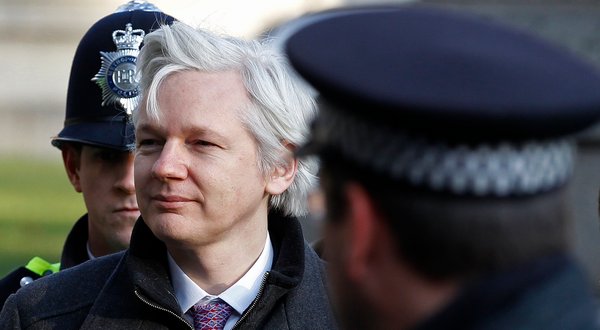
WikiLeaks Founder Loses in Court Again
RAVI SOMAIYA
LONDON — Britain’s Supreme Court on Thursday rejected a final move by the founder of WikiLeaks, Julian Assange, to reopen his appeal of a ruling ordering him extradited to Sweden to face allegations of sexual abuse and rape. In a statement, the court also ruled that he must be extradited by midnight on July 7, barring further legal intervention.
The ruling could be the end of a legal battle that Mr. Assange, 40, first waged, when he was arrested in December 2010, as a broad defense against what he called unjust allegations and a global conspiracy to silence him. Eighteen months and millions of dollars in legal fees later, his defense to the Supreme Court had dwindled down to one narrow argument: whether Swedish prosecutors were defined as a “judicial authority” with the power to issue an arrest warrant for him.
When five of the seven Supreme Court judges ruled against him on May 30, his legal team argued that their decision referred to an interpretation of the words “judicial authority” in the Vienna Convention, a point of law that had not been raised by either side at an earlier Supreme Court hearing. They asked that the ruling be set aside and the case be reopened.
But the justices unanimously upheld their initial decision, saying that a lawyer for Mr. Assange, Dinah Rose, was given the opportunity to challenge the application of the Vienna Convention to the case but had not done so. Therefore, it said in its statement, “the court considers that this application is without merit and it is dismissed.”
It ruled that a required 10-day countdown to the final extradition date should begin in 14 days.
That stay was granted, said a spokesman for the court, to allow Mr. Assange to file an appeal to the European Court of Human Rights in Strasbourg, France, if he chooses to do so. The European Court, which supersedes British courts, can prevent the extradition if it decides to take the case.

Julian Assange, the founder of WikiLeaks, arrived at court in London in February.
However, lawyers have said, it is far from guaranteed that the court will intervene. Jennifer Robinson, a lawyer who has worked closely with Mr. Assange, said he was still considering his legal options.
The case in Sweden concerns allegations by two women in Stockholm that their consensual sexual encounters with Mr. Assange became coerced in August 2010, during a period when Mr. Assange was at the height of his global fame and in the midst of releasing hundreds of thousands of classified United States military and diplomatic documents.
He is wanted for questioning on one count of unlawful coercion, two of sexual molestation and one of rape.
Mr. Assange was interviewed by the police once, but left Sweden before investigations were complete. Since his arrest in Britain, and a brief spell in jail, he has been under house arrest in the south of England. Because many of WikiLeaks’ senior architects left the organization after disputes with Mr. Assange, he has said that it lacks the resources to leak new documents.
